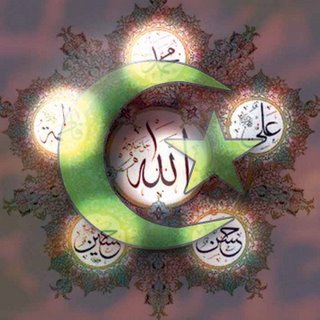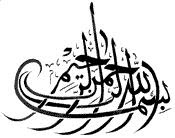
------------------------
On vigil
The Shaikh (may Allah be well pleased with him) also spoke about His words (Exalted is He):
Keeping vigil by night is more potent in impact. (73:6)
This refers not only to giving up sleep in the ordinary sense, but also to giving up the sleep of involvement with creatures, the lower self [nafs], natural inclination [tab'], passion [hawa] and willfulness [irada]. For its food and drink the heart is left with speaking confidentially [munajat] to Allah (Almighty and Glorious is He), standing [qiyam] and bowing [ruku'] and making prostration [sujud] in His presence.
Surely you can see that if someone abstains from this world, so as not to be distracted by it from seeking the Lord of Truth (Almighty and Glorious is He), he must likewise abstain from the hereafter, so that it will not distract him from Allah (Almighty and Glorious is He). He must wish that the hereafter did not exist, because it is so charming, such an obvious mercy. He must make the heart and the innermost being become a face, on the surface of which the contents of his heart are visible. He must want this world to last, because he is worshipping Allah in secret, doing business with Him in secret.
You are in isolation from the Lord of Truth (Almighty and Glorious is He). When will you isolate your heart from creatures and seek the company of the Lord of Truth, going from door to door until there is no door left, from town to town, from heaven to heaven until there is no heaven left?
He [the believer] will bring the Resurrection upon himself. He will stand before the Lord of Truth (Almighty and Glorious is He), reading the records of his deeds, the good and the bad which consign him to the Fire [of Hell]. While he is caught between fear and hope, between falling into the Fire and crossing over it, Allah (Exalted is He) will overtake him with His gracious kindness. He will put out the Fire with the water of His mercy, and the Fire will exclaim: "Pass through, O believer [mu'min], since your light has extinguished my flames!" The passage–a journey that should take three thousand years–will be shortened for him to an instant, and then, when he is near to the palace of the King, he will recover his senses, his volition, his love for His Master [Mawla] and his ardent longing for Him. He will say: "I shall not enter except in the company of the Beloved [Mahbub]."
Do you not see? [As we know from sayings of the Prophet (Allah bless him and give him peace)], the miscarried fetus [siqt] will halt at the door of the Garden [of Paradise], saying: "I shall not enter until my parents enter. Where is the neighbor? Where is the witness?"
He will not enter until he is touched by the hand of the Prophet (Allah bless him and give him peace) and he can go in to meet the Beloved. Then, when he has finally experienced this, he will be sent back into this world, in order to receive his full quota of the shares allotted by destiny [aqsam], so that the [divine] foreknowledge ['ilm] shall not be altered, abrogated and annulled. Your Lord has finished with the work of creation.
[As the Prophet (Allah bless him and give him peace) has said:]
No soul shall depart from this world until it has received its allotted share [qism] in full.
You must therefore be dutifully devoted to Allah (Almighty and Glorious is He) and have the decency to look to the Lord of Truth for what you need, instead of to His creatures. The material means [asbab] are a screen.
The King's doors are locked. If you turn away from them, there will be opened unto you a door you can recognize. The door of the innermost being has swung shut [babu's-sirri sara ila sadd], but then it is opened without your own power and strength.
The believer [mu'min] must leave his natural inclination [tab'] behind, moving in the direction of his Lord. As long as he is following this present course, he is exposed to harmful influences affecting his person and his property. He is reverting to his sins, to his bad behavior and to infringing the rules [hudud] of the sacred law [shar'] of his Lord. He must not seek help through supplication [du'a'], nor must he seek help from anyone other than his Lord. No, he must remember his sins and practice self-criticism until, when he has done a thorough job of this, he can resort to acceptance of the decree of destiny [qadar], to surrender [taslim] and entrustment [tafwid] as far as his heart is concerned. Once he is in this state, he will see an open door.
Whoever is dutiful toward Allah, He prepares a way out for him. (65:2)
He puts His servant to the test to see how he will behave:
And We have put them to the test with good things and bad things. (7:168)
The heart of the son of Adam must continue to travel along the path of good and evil, honor and humiliation, wealth and poverty, until he finally acknowledges that all blessings are due to Allah (Almighty and Glorious is He). This means gratitude [shukr]–and gratitude is an act of obedience [ta'a] performed without moving the tongue and the limbs of the body–and patient endurance of misfortune. He must admit his sins and offenses until, having taken his last step on the good side and his last step on the bad side, there he is at the King's door. He has taken the step of gratitude and the step of patience, with divine help [tawfiq] as the guide. He has seen the King's door, and beyond it he can see things that no eye ever saw, that no ear ever heard of, and that never occurred to any human heart. The alternating sequence of good moves and bad moves is at an end; now comes the turn of conversation, discourse and sitting in company [with the Lord].
Can you grasp this, O 'Iraqi, O camel at the mill, O stupid fool? You go through the motions of ritual prayer [anta fi qiyam wa-qu'ud] without sincerity. You perform the prayers [tusalli] for the sake of other people, and while you are fasting [tasumu] your eyes are on their dishes of food and on the contents of their houses.
O alien to the human race, O straggler from the ranks of the champions of truth [siddiqun] and the Lord's own people [rabbaniyyun]! Do you not realize that I am your goldsmith's furnace, your probe and your touchstone? Do your utmost. Refuse to let me eat from your plate. Unsheathe your sword against me. You do not amount to anything. O little ignoramus, I am twisting your reins. I am giving you good advice and treating you with compassion. I am afraid that you may die an atheist [zindiq], a pretender [mura'i], an impostor [dajjal]-doomed to suffer in your grave the punishment of the hypocrites [munafiqun]. So you must desist from what you are up to. You must strip yourself naked and then put on the clothes of dutiful devotion [taqwa]. You will soon be dead. There is no hostility between me and you. You will have cause to remember what I am saying to you.
The insight of the righteous man [salih] is indicative of his spiritual state [hal]. When someone really knows ['arafa] Allah, his tongue falls silent; he is free from want because of Him, and of Him alone he is in need.
In my childhood, back in my home town, I used to hear someone saying to me, "O blessed one [ya mubarak]." I would run away from that voice, but then in solitude I would hear someone saying to me: "I think well of you."
If you wish for success [falah] you must stick close to me. When you see a person running away from me, you must know that he is a hypocrite.
The believer [mu'min] is such that, when he closes the eyes in his head, the eyes of his heart are opened and he sees what is over there; and when he closes the eyes of his heart, the eyes in his head are opened and he sees the situation of Allah and His dealings with His creatures.
The words of Allah addressed to Moses (peace be upon him) include the following:
I have chosen you above all men to receive My mission and My words. (7:144)
"And I have drawn you close to Me. One day you were shepherding a flock of sheep when one of them strayed off, so you followed after it until you caught up with it. By then you were exhausted, as it was exhausted, so you picked it up and hugged it and you said: 'You have worn yourself out and you have worn me out.'"
The remedy for someone who is separated [from the Lord] is detecting the cause of his separation, turning from it in repentance and confessing it in His presence.
The sinless ones [ma'sumun], those who are protected from every aspect, they do not have creative power [takwin]. Creative power comes in the process of following the path [fi't-tariq]. There is nothing worth talking about until you cross the wastelands, the deserts, the two continents and the two oceans –the continent of creatures and the continent of the self [nafs], the ocean of the law [hukm] and the ocean of knowledge ['ilm] –as well as the shore.
For the people [of the Lord] there is neither night nor day. Their diet is the diet of the sick and their sleep is the sleep of the drowned. Their speech is only out of necessity. When someone really knows Allah, his tongue falls silent, but "when He wills, He resurrects him" (80:22), and then he speaks without instruments, without tools, without preparation, without time for thought, without pretext. There is no difference between his tongue and his finger. Thus there is no wall of separation, no restriction, no door and no doorman, no permission to be granted or sought, no authorization and no dismissal, no Satan and no sultan, no inner core [janan] and no fingertips [banan].









1 comment:
TERUSKAN PERJUANGAN!!!
mynameiszainal.blogspot.sg
Post a Comment